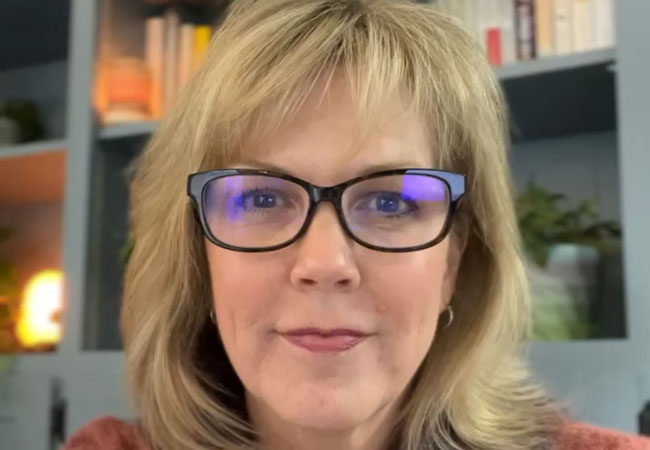I saw my first LGBTQIA+ clients as a practicum therapist in the Fall of 2003. It has been a true privilege to work with this community and to stand alongside them, as an ally.

I have always taken this role seriously and worked hard to learn and grow in my knowledge, understanding and skill. I have made mistakes and will again. It’s not possible to be a perfect ally, but it is possible to continue to work toward being better.
Things have changed significantly in the last few years. In the U.S., over 500 anti LGBTQIA+ bills have been drafted, proposed, or passed. In my own city of Redlands, California, we have gone from a vibrant, city-endorsed Pride celebration in 2019, to our Mayor refusing to fly the Pride flag this year during June. My own neighborhood was littered with anti LGBTQIA+ and anti-Semitic propaganda this week. It is, in many ways, an unsafe and dark time in the United States for the queer and trans community. In response, my allyship has moved beyond trainings and providing therapy, to city council and school board meetings. I have learned many things in my career as an allied therapist. I invite you to explore your role and how you may create safety for your LGBTQIA+ friends, family, loved ones and colleagues.
1) Listen
Speak with members of the community frequently. It is possible to be a wonderful ally, but also possible to be insensitive and to cause more difficulty for the LGBTQIA+ community. Ignorance breeds ignorance, so speaking on LGBTQIA+ issues when you haven’t even spoken to members of the community is one of the worst things you can do as an ally. Not only that but getting a personal view from a member of the community is invaluable to enhance your understanding as a *cishet person. Be mindful of asking a queer or trans person to engage in unpaid emotional labor. If you are seeking knowledge, understanding, or guidance about your work as an ally, be willing to compensate the person sharing time and knowledge with you. Offer to buy a meal, pay for an hour of their time, whatever. Don’t expect to be educated for free. Allyship takes an open mind and a willingness to listen. It’s also good to remember that one person is not a representative of an entire community. Seek out information and knowledge from many sources.
2) Be cognizant of the space you are taking up
Do not assume all spaces are for you. I caution against taking up space in the movement without being aware of what you are doing. If you have been specifically asked to go to an event, or you know that an event is open to the public, head over and celebrate. If you arrive at an event that is closed or has little space, the space should go first and foremost to members of the LGBTQIA+ community. I do not attend Pride unless I am invited to do so. When engaging in public activism, I try to understand if my speaking will prevent a queer or trans person from speaking. It’s also important to understand that LGBTQIA+ people are literally being targeted for existing. It is important to step in to allyship when it is in support of the community. Doing so may subject you to becoming a target as well. Be mindful and be safe.
3) Be courageous!
Often, being an ally consists of small steps. Introducing yourself with your pronouns. Asking your colleagues to put their pronouns in their email signature or professional bio. Not making assumptions about someone’s significant other (‘Tell me about your partner’ vs ‘Tell me about your husband/wife’). Speak up about harmful practices you may notice. Take a moment to educate someone if they use a slur or tell an inappropriate joke. These may not feel like big steps, but they add up. If you’re engaged in a class discussion and an offensive term is used – assume the best (a lack of knowledge) and gently engage. Engage with information when you see false or harmful posts online. These are just some of the smaller ways we can create change. Remember that if you choose to not engage – that is an act of privilege. Being able to ‘opt out’ is not something that many LGBTQIA+ people have the option to do.
4) Rest!
Lastly, be sure to rest. Allyship, especially in the current climate, is hard. It can feel exhausting and scary and lonely. Do it anyway. Then be sure to find ways to recharge. If we burn out in this work, we won’t be able to continue. This is a marathon and not a sprint. Take good care of yourself so you can continue to help others do the same.
– Traci Lowenthal, Psy.D. (she/her) received her doctoral degree in Clinical Community Psychology in 2007 from the University of La Verne. She owns a small private practice in Redlands, California. Dr. Traci is an educator, trainer, supervisor, private practice coach, writer and advocate. Her practice specializes in working with LGBTQIA+ individuals. She has been working with Yorkville University as a teaching assistant and instructor since 2008. She can be found on Instagram @CreativeInsightsCounseling and on Tiktok @SwearyShrink





